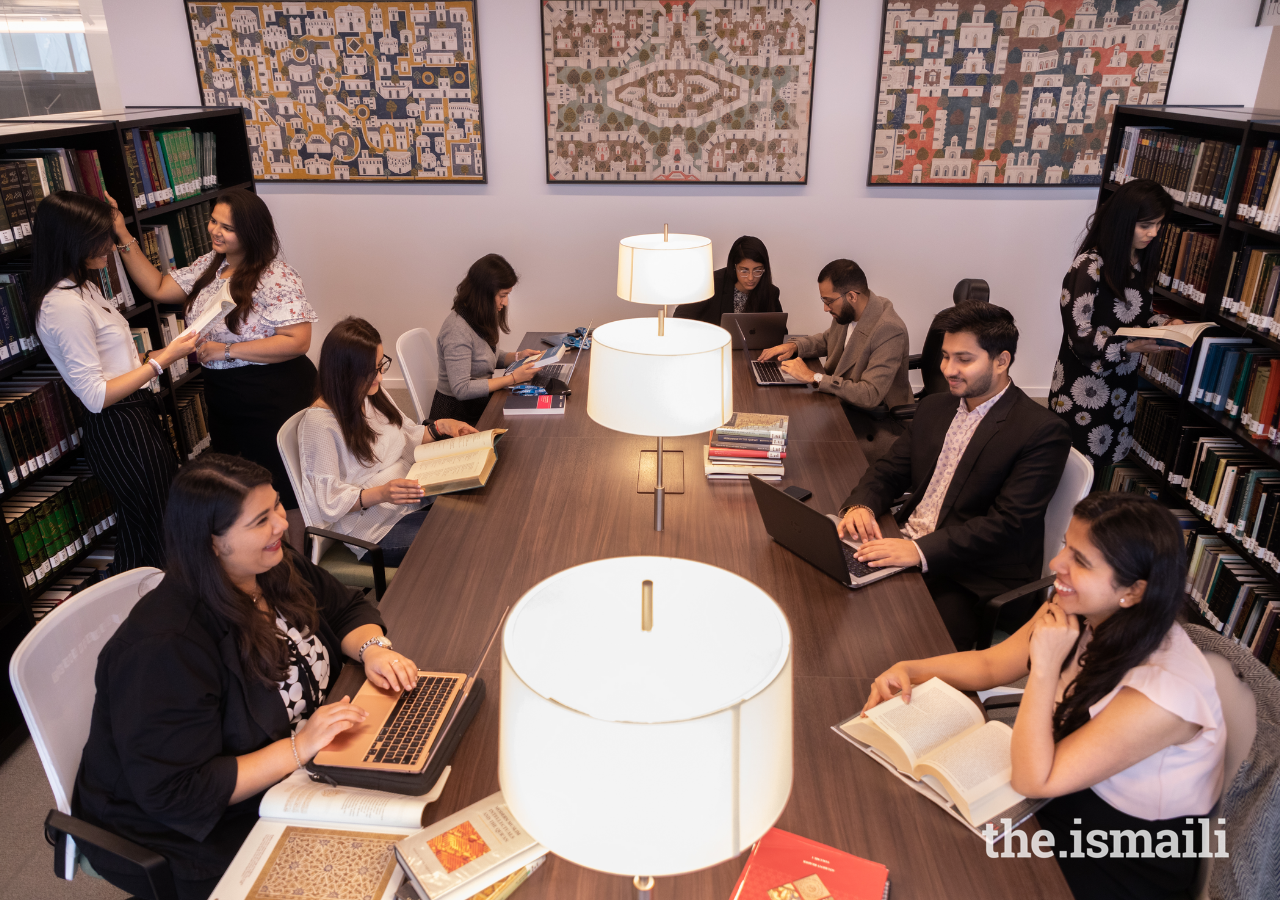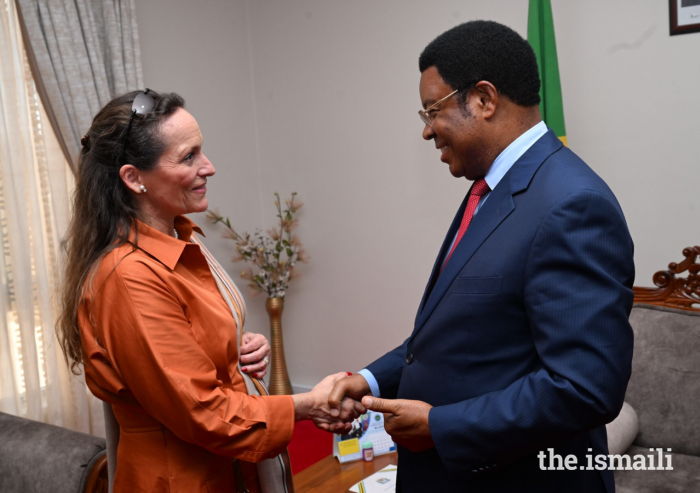The global challenges of today and tomorrow will require global solutions. From climate change and food security, to social inclusion and gender parity, being exposed to diversity in culture, in thought, in approaches to life, can help to broaden horizons and develop responses to the issues that humanity collectively faces.
Each cohort of the Graduate Programme in Islamic Studies and Humanities (GPISH) and the Secondary Teacher Education Programme (STEP) is composed of international students from around the world, creating a dynamic space for collaboration where ideas are shared from diverse settings and backgrounds, accounting for nuances and cultural differences.
“It’s bringing together a really varied group of students from all over the world, with different backgrounds, different experiences of what it is to be Muslim or Ismaili,” said Dr Alex Henley, GPISH Programme Leader. “But also different ambitions, different goals, different interests, and bringing those together into one class creates the space in which we’re all learning together - and that’s really exciting.”
These differences invariably lead to enriching discussions, incorporating various contexts and experiences, and thus enhancing students’ understanding of the world.
“This year we have students from 11 different nationalities in our cohort who are from diverse backgrounds and age groups. It was exciting to see so much diversity,” said Fareesa Lokhandwala from New Zealand, part of the STEP cohort 14. “The faculty too are from different countries and contexts. Thus, diversity and acceptance of this diversity are not only reflected in the environment but being lived in both spirit and action.”
Whether engaging with the course materials or simply reflecting upon the architectural features at the campus buildings, GPISH and STEP students are treated to a daily diet of diversity.
“As a student at the IIS, simply being at the Aga Khan Centre in King’s Cross is in itself a pluralistic experience,” said Nazia Karmali from India, part of the STEP cohort 13.
“The architecture and spaces in the building reflect the deep-rooted commitment toward cultural, ethnic and linguistic diversity whether you enter one of the exquisite gardens or peruse through the library shelves, or engage with a peer or the administration. The environment at The Institute is structured to foster and nurture an attitude of acceptance, growth, and learning toward the rich diversity within it.”
The actual learning materials allow room for students to grow academically, but also to develop themselves personally, benefiting them outside of the classroom.
“The content of the course enables students to challenge certain cultural and religious paradigms and makes us think beyond these categories,” said Dilrabo Khujanazar, from Tajikistan and part of the GPISH class of 2022.
“Various modules of GPISH helped me significantly expand the boundaries of my thinking and to be more open to different thoughts and approaches,” continued Dilrabo. “I believe this is the core of pluralism and this is what I perceived through my studies.”
These days, being a student goes beyond sitting in a library, studying for an exam. Being at the IIS, one has the opportunity to learn as much informally from peers as from the formal course content. This additional dimension has become an essential part of the learning experience.
“From physically engaging with colleagues from around the world to stimulating intellectual debates, being a student here allows for a multiplicity of opinions, perspectives, and ways of life,” said Anusha Hudda from the USA, part of the STEP cohort 13.
“Every day one can learn about an interesting and unique story of someone they interact with. This environment is the definition of a pluralistic society, where people are not only connected academically, but emotionally invested in each other’s growth and ideas in learning about the world around them through its people.”
In addition to the opportunities for learning, the student body offers a strong support network. IIS students often share the journey of discovery with their colleagues, many of whom have similarly left their homes in search of knowledge and skills to take back to their communities.
“Coming here and this unique new environment where you learn about the Ismaili faith, but you’re now able to see the diversity that truly exists in person. You have brothers and sisters from all across the world,” said Aqib Lakhani from the USA, part of the GPISH class of 2023.
“It allows us to develop a sense of brotherhood and community that we can then put into practice.”
---
Applications for the Graduate Programme in Islamic Studies and Humanities (GPISH) intake of 2022 are now open, and close on 17 January 2022 at 12 noon GMT. To learn more and to apply, visit The Institute of Ismaili Studies website.









